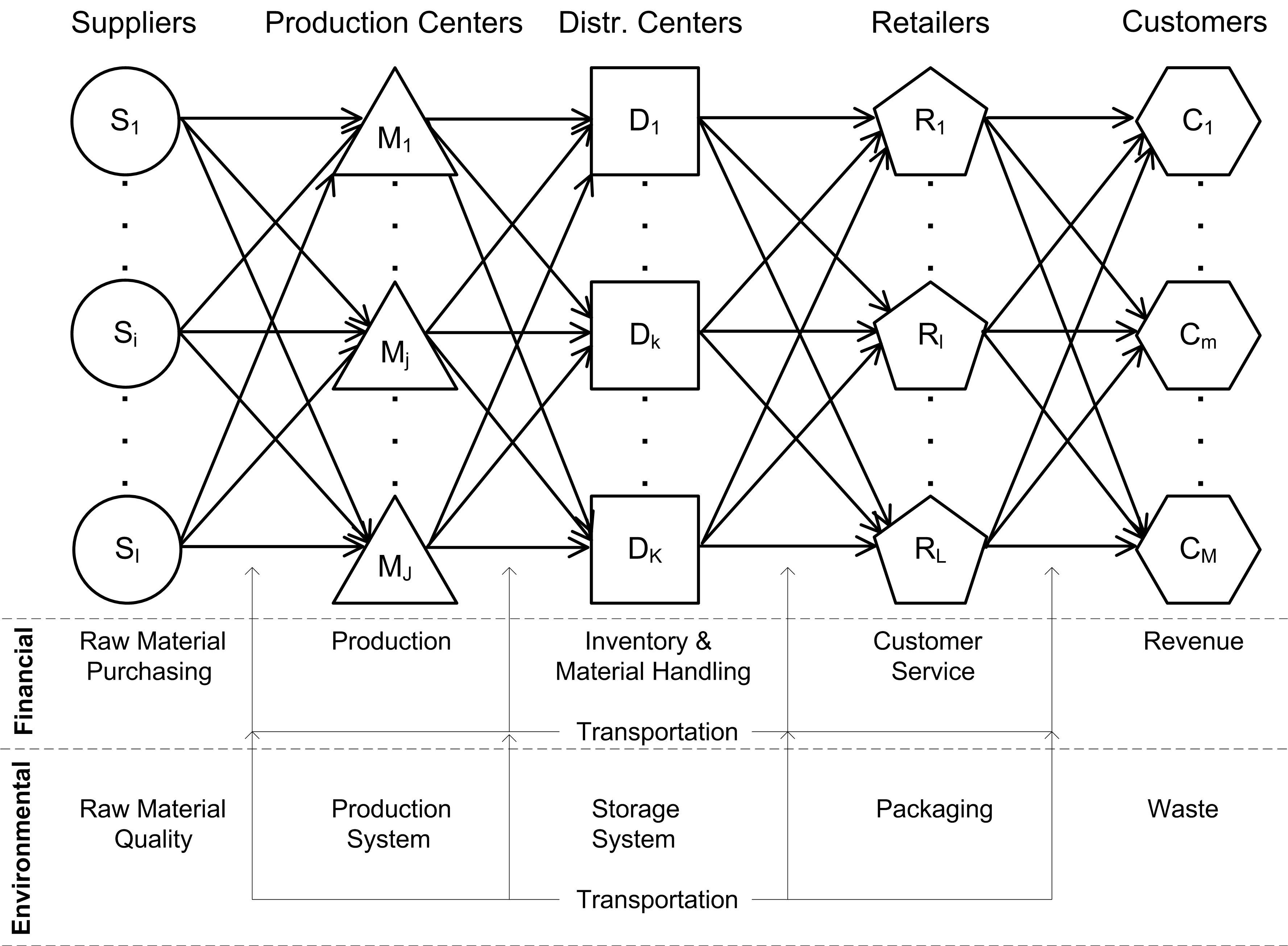Supply Chain Management and Logistics Research at SystemsLab
Typical supply chain systems consist of customers, retailers, distributors, warehouses, production facilities, and suppliers that can be represented as nodes in a highly integrated network. An efficient supply chain integrates activities such as product design, demand forecasting, production/sourcing, production planning and scheduling, warehousing, transportation, fulfillment of orders and customer service in a concise manner.

These activities have effects on two performance indicators of supply chains: economic and environmental.

- Discrete-Continuous Optimization Models and Algorithms for Multi-Echelon Supply Chains
- Environmentally Conscious Supply Chain Management
- Sustainability in Supply Chain Management and Logistics
- Transportation Planning and Scheduling
- Inter-Modal Logistics
-
Mestan, E., M. Turkay and Y. Arkun, "Optimization of Operations in Supply Chain Systems Using Hybrid Systems Approach and Model Predictive Control", Ind. Eng. Chem. Res., 45(19), 6493 - 6503 (2006).
-
Soylu, A., C. Oruc, M. Turkay, K. Fujita, and T. Asakura, "Synergy Analysis of Collaborative Supply Chain Management in Energy Systems using Multi-Period MILP", European Journal of Operational Research, 174(1), 387-403 (2006).
-
Turkay, M. and A. Soylu, "Synergy Analysis of Collaboration with Biofuel Use for Environmentally Conscious Energy Systems", Computer-Aided Chem. Eng., vol 21B: ESCAPE-16, W. Marquardt and C. Pantelides (Eds.), 1827-1832, Elsevier, Amsterdam (2006).
-
Turkay, M., C. Oruç, K. Fujita, and T. Asakura, "Multi-Company Collaborative Supply Chain Management with Economical and Environmental Considerations", Comput. Chem. Eng., 28(6-7), 985-992 (2004).
-
Turkay M., T. Asakura, K. Fujita, C.W. Hui, Y. Natori, Y. Masaiwa, H. Oonishi, and I.B. Tjoa, “Total Site Optimization of a Petrochemical Complex”, AIChE Symposium Series, vol. 94, G. Blau and J. Pekny (Eds.), 185-189 (1998).
Other application areas:

